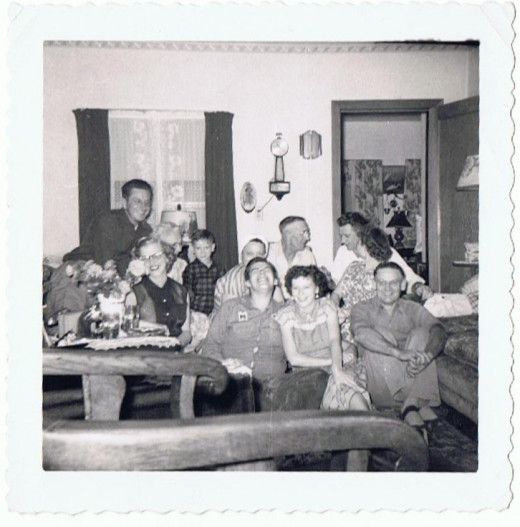The Writer's Mailbag: Installment 299
In Awe of Excellence
I was listening to a song called “Piano Man” by Billy Joel. Now I’ve heard that song probably a couple hundred times over the years, but for whatever reason the following lyric jumped out at me the other day:
“They’re sharing a drink they call loneliness,
But it’s better than drinking alone.”
I don’t know about you, but I consider that lyric pure genius. That is the kind of writing I aspire towards. It is a gasp moment of writing, a slap-your-forehead, shout-from-the-mountaintops moment in writing, and I have to believe Joel felt pretty damned good after he wrote it.
I write for those moments. Every once in awhile I’ll write a sentence, or a phrase, and I’ll actually sit back and smile, saying to myself “Damn, Bill, that ain’t half-bad!”
Happy writing to all of you! Live for moments like that one.
Let’s do this Mailbag thing, shall we, as we rapidly approach the 300th installment of this series.

How to Inspire?
From Ann: “You are so good at inspiring and enthusing, bill. How do you do that? I think I know the answer but I want to see what you come up with.”
That is very kind of you to say, Ann. Thank you!
The answer is a combination of factors.
I was a lonely kid. I craved attention and recognition as a child. My parents were wonderful in that regard, but I think most children expect that from loving parents. I needed more, and I recognized, at an early age, how important it was for people to be noticed and encouraged.
That belief was reinforced when I became a teacher. I found many children who craved a pat on the head and a word of encouragement. I saw, firsthand, how children glowed when they received positive feedback.
And then, as a writer, I came to realize what a solitary and, at times, lonely profession writing truly is. Many writers toil in obscurity their entire lives. If I can, in some way, encourage writers to continue with their work, I feel I’ve done my part to promote the Art of Writing.
So, was I close to what you were thinking, Ann?

Petering Out
From Eric: “So seriously (for me that is) I got to the climax to fast. I had thought the story should be longer but it just petered out. How do you do that kind of bell curve deal with a story line -- I don't want the apex to close to beginning or end.”
Eric, what you mention is a common problem for many writers who are undertaking a novel for the first time. The natural inclination is to tell the story, just get to it and swiftly flow from beginning to end. Unfortunately, as you stated, most novels would be about ten-thousand words in length if every writer did that.
Filling in the gaps is a bit trickier, and that’s where scene descriptions, character development, and subplots come into play. My approach to a novel is this: my first draft is basically the bare-bones story; my second go-through then works on scenes and characters and subplots. I have to constantly remind myself that my job is to not only tell the story but to make it come alive for the reader. I am the eyes of the reader. I tell the sounds and smells of a story. All of that takes time, and all of that takes a fair amount of words to do properly.
I hope that helps. I can sum it up by saying this: don’t be in a big hurry to tell the story!
Famous Memoirs
From Flourish: “I like that you differentiated autobiography and memoir. Are there specific examples of famous people who have done a particularly good job writing their memoirs? (Feel free to save this for your column if you wish.)”
There sure are, Flourish. I think I mentioned one in that memoir article. Elizabeth Gilbert wrote a wonderful memoir titled “Eat, Pray, Love.” You might also want to read “The Diary of a Young Girl” by Anne Frank, or “I Know Why the Caged Bird Sings” by Maya Angelou, or “Marley & Me” by John Grogan. I could go on, but those should keep you busy. All are wonderful examples of a memoir.
And, of course, don’t forget mine, “And the Blind Shall See.” LOL Famous indeed!
Starting out With a Bang
From Maria: “Bill, you’ve mentioned often how important it is to begin a story or a novel with a bang, an attention-grabbing scene or event which will grab the reader and not let them go. That sounds easy, but how do you do it so effortlessly? Do I have to blow something up in the opening scene to accomplish that? Seems a bit drastic for a love story.”
That had me laughing, Maria!
No, you don’t have to blow anything up, but you do have to give the reader a reason to continue.
Let me give you an example. I just grabbed a book off of my bookshelf. It is titled “Locally Laid” by Lucie B. Amundsen, and it is a book about a husband and wife who started an egg farm from scratch with no background in chickens at all. Here is the opening paragraph from Chapter One:
“At dusk, hens seek their coop. So reliable is this, there’s even a saying, an adage: Chickens come home to roost. It’s for warmth. It’s for protection. It’s hardwired. But our first shipment of nine-hundred mature birds, just purchased from a commercial operation, stands on the field staring. They tilt and turn their heads to better align us with their side-placed eyes, as though awaiting instructions. Then, as darkness quiets the pasture, I get it. My hand on my lips, I mumble, “Oh God.” These hens are out of sync with the sunset because until today, they have NEVER SEEN THE SUN. While I’ve worried about many things going wrong with our unlikely egg startup, chickens not knowing how to be chickens was not one of them.”
No one died in that opening paragraph. Nothing was blown up. Still, it is interesting enough so that I want to continue reading the book. Just the idea that nine-hundred chickens had never seen the sun had me hooked.
It’s a very simple thing to do, and it is highly effective.
Let’s look at another one, “To Kill A Mockingbird,” by Harper Lee. Here are the opening two paragraphs of that classic:
“When he was nearly thirteen, my brother Jem got his arm badly broken at the elbow. When it healed, and Jem’s fears of never being able to play football were assuaged, he was seldom self-conscious about his injury. His left arm was somewhat shorter than his right; when he stood or walked, the back of his hand was at right angles to his body, his thumb parallel to his thigh. He couldn’t have cared less, so long as he could pass and punt.
“When enough years had gone by to enable us to look back on them, we sometimes discussed the events leading to his accident. I maintain that the Ewells started it all, but Jem, who was four years my senior, said it started long before that. He said it began the summer Dill came to us, when Dill first gave us the idea of making Boo Radley come out.”
Pure genius! Again, no one died. Not much of anything happened, truth be told, and yet I badly want to know why Jem’s arm was badly broken, and who the hell is Boo Radley?
Go for it, Maria! Practice may not make perfect, but it sure does improve your skills.

That’s All for This Week
Next week marks #300. Pretty amazing, if you ask me; I had no intention of making this a series. You guys, and gals, brought this to life and you continue to breathe life into it each week, and for that I thank you.
And now it’s time for you to go make your mark on the writing world. Dazzle us with your lyrics, your paragraphs, and your stanzas. The world is waiting to be amazed by you.
Remember, if you want some coaching, I’m available at a very reasonable cost. Email me at holland1145@yahoo.com and we’ll sharpen your skills.
2020 William D. Holland (aka billybuc)
“Helping writers to spread their wings and fly.”








